观星指南(2023年3月)
3月份的天空会发生什么?金星高高升起,而木星向太阳后方俯冲,还有一颗与你的早餐麦片同名的小行星。

3月份的天空会发生什么?金星高高升起,而木星向太阳后方俯冲,还有一颗与你的早餐麦片同名的小行星。

Former NASA astronaut Scott Kelly snapped this photo of the Earth’s crescent, the Moon, Venus, and Jupiter (from top to bottom) on Aug. 6, 2015, while he was aboard the International Space Station. These celestial bodies have been quite close in the night sky; on March 1, Venus and Jupiter were nearest to each other. For more skywatching tips, check out our monthly skywatching guide. 2015年8月6日,NASA前宇航员斯科特·凯利在国际空间站上拍摄了这张月牙形的地球、月球、金星和木星(从上到下)的照片。 这些天体在夜空中离得很近;3月1日,金星和木星距离最近。如欲了解更多观测天空的技巧,请查看我们的月度观星指南。
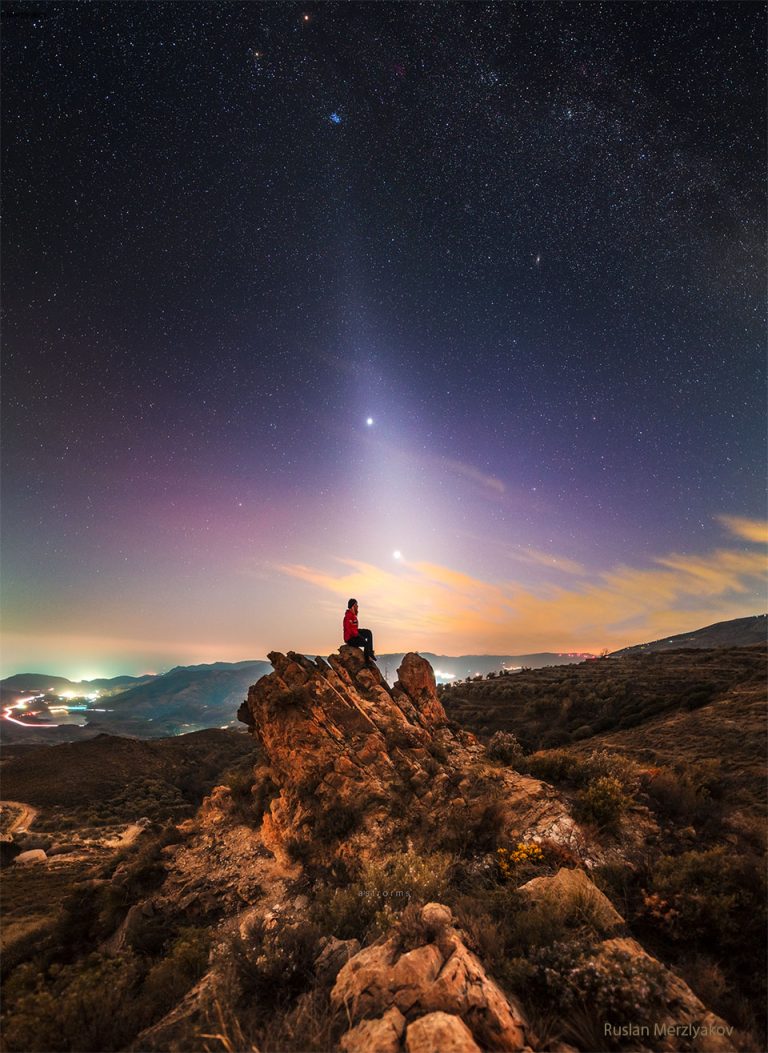
2023年2月27日 Zodiacal Ray with Venus and Jupiter Image Credit & Copyright: Ruslan Merzlyakov (astrorms) Explanation: What’s causing that unusual ray of light extending from the horizon? Dust orbiting the Sun. At certain times of the year, a band of sun-reflecting dust from the inner Solar System appears prominently after sunset or before sunrise and is called zodiacal light. The dust was emitted mostly from faint Jupiter-family comets and slowly spirals into the Sun. The featured HDR image, acquired in mid-February from the Sierra Nevada National Park in Spain, captures the glowing band of zodiacal light going right in front of the bright evening planets Jupiter (upper) and Venus (lower). Emitted from well behind the zodiacal light is a dark night sky that prominently includes the…
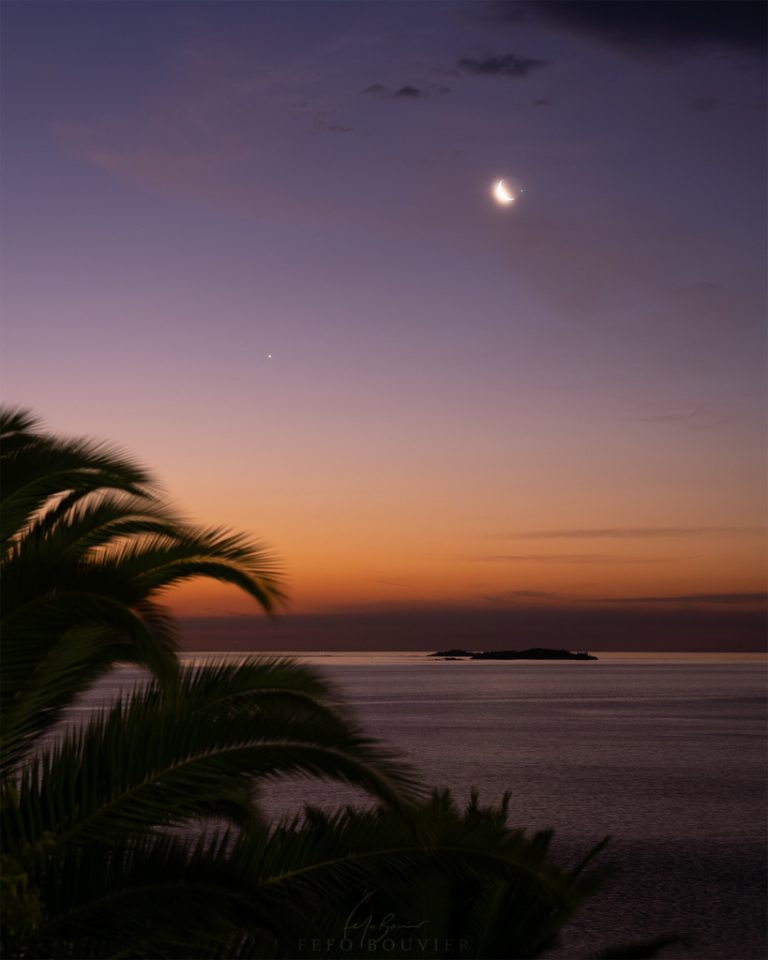
2023年2月25日 Crescent Moon Occultation Image Credit & Copyright: Fefo Bouvier Explanation: On February 22, a young Moon shared the western sky at sunset with bright planets Venus and Jupiter along the ecliptic plane. The beautiful celestial conjunction was visible around planet Earth. But from some locations Jupiter hid for a while, occulted by the crescent lunar disk. The Solar System’s ruling gas giant was captured here just before it disappeared behind the the Moon’s dark edge, seen over the Río de la Plata at Colonia del Sacramento, Uruguay. In the serene river and skyscape Venus is not so shy, shining brightly closer to the horizon through the fading twilight. Next week Venus and Jupiter will appear even closer in your evening sky. Tomorrow’s picture: Saturn’s…

2月份的天空会发生什么?
最亮的行星聚集在一起,御夫座和两个你可能想要了解的天狼星星团。

1月份的天空会发生什么?
行星会有一些近距离的相遇,冬天的明亮恒星,还有机会观测彗星。
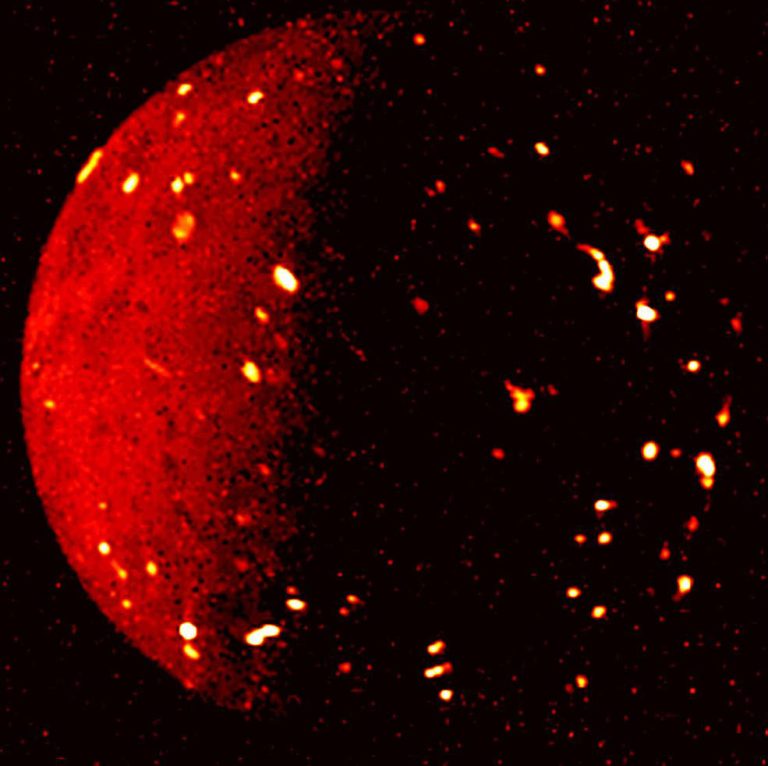
在揭示了木卫三(Ganymede)和木卫二(Europa)的大量细节后,木星探测任务将目光投向了姐妹卫星木卫一(Io)。
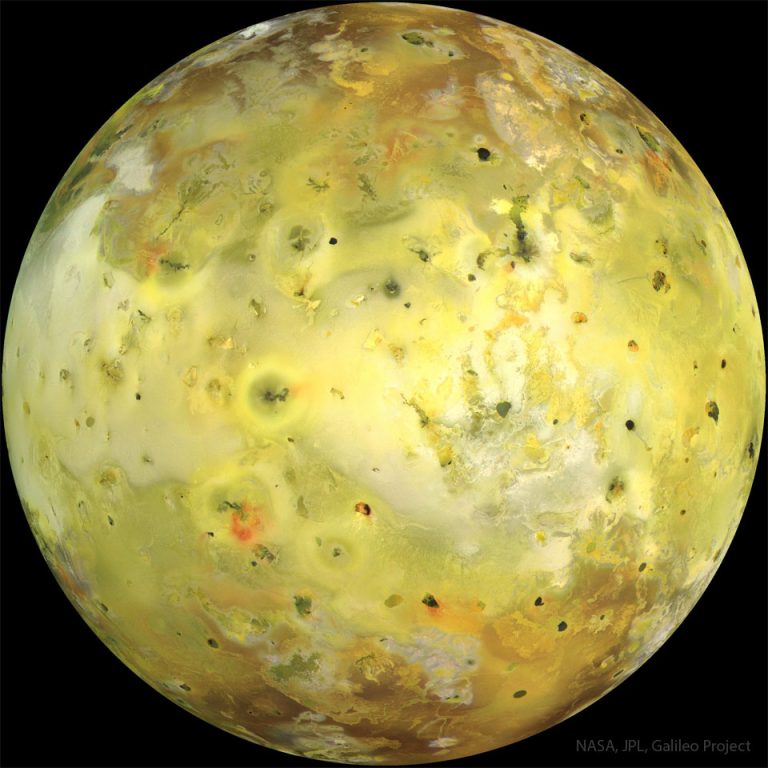
2022年12月11日 Io in True Color Image Credit: NASA, JPL, Galileo Project Explanation: The strangest moon in the Solar System is bright yellow. The featured picture, an attempt to show how Io would appear in the “true colors” perceptible to the average human eye, was taken in 1999 July by the Galileo spacecraft that orbited Jupiter from 1995 to 2003. Io’s colors derive from sulfur and molten silicate rock. The unusual surface of Io is kept very young by its system of active volcanoes. The intense tidal gravity of Jupiter stretches Io and damps wobbles caused by Jupiter’s other Galilean moons. The resulting friction greatly heats Io’s interior, causing molten rock to explode through the surface. Io’s volcanoes are so active that they are effectively turning…

In this illustration by Rick Giudice from August 1973, the Pioneer 10 spacecraft passes by the gas giant planet Jupiter. The spacecraft’s primary goal was to explore Jupiter, its satellites, its magnetic field, and trapped radiation belts. Pioneer 10 was the first satellite to pass through an asteroid belt and the first spacecraft to obtain detailed images of Jupiter and its moons. Between 1972 and 1974, the Deep Space Network ground stations tracked the Pioneer 10 for over 21,000 hours. Pioneer 10 fell silent on its 30-year anniversary in 2002. Learn more about the Pioneer missions. Image Credit: NASA 在1973年8月里克·朱迪的这幅插图中,先锋10号飞船飞越气态巨行星木星。该航天器的主要目标是探索木星、其卫星、其磁场和捕获的辐射带。先锋10号是第一颗穿越小行星带的卫星,也是第一艘获得木星及其卫星详细图像的航天器。1972年至1974年间,深空网络地面站跟踪了先锋10号超过21,000小时。2002年,先锋10号在成立30周年时沉寂了下来。 了解更多关于先锋任务的信息。 影像来源:NASA
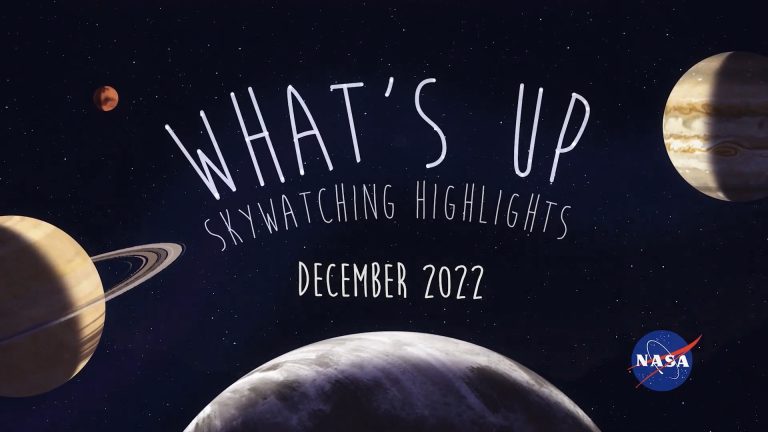
12月的天空会发生什么?你的夜晚行星的亮点,包括火星的消失和天马座。